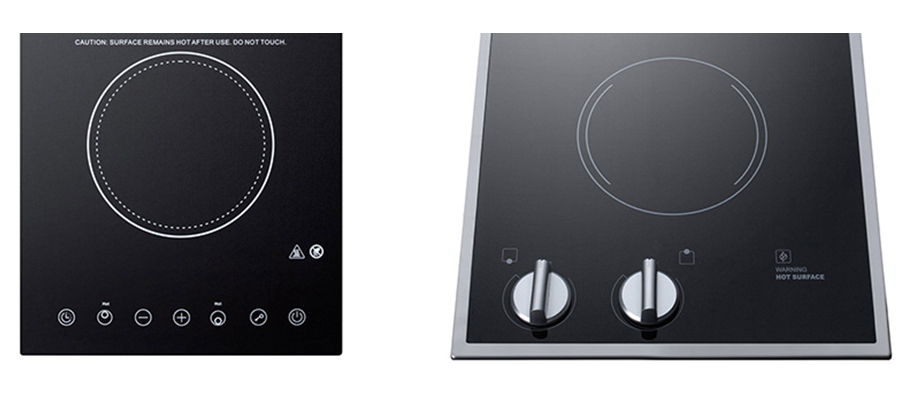Ah, technology. It’s a marvelous thing. You can easily connect to your friends, see a movie without ever leaving your home, or program your vacuum to clean your house while you are away. For many, this has made life easier, more convenient, and more connected than ever before. This convenience expands to the appliance world as more and more have transitioned from mechanical (e.g., dials, knobs, timers) to electronic controls. Today, it’s common to find cooktops with digital controls, or dishwashers that auto start and open when a cycle is finished. More and more manufacturers are moving to “smart” technology , with features that allow your refrigerator to text you when you’re low on milk, or ovens you can program to pre-heat on your way home from the office.
While some of these features are undoubtedly convenient, there are still plenty of consumers who prefer the old fashioned ease of spinning a knob to control their appliance.

Benefits of Mechanical Controls
Outlined below are several benefits that mechanical controls offer over electronic controls.
Familiarity
Since most users have operated mechanical controls before in their life, the learning curve will be less than (or non-existent) than that of electronic controls. For example, compare the two cooktops below:
You instantly know to turn the knob to your desired heat level according to the graphic and your own sense. With digital controls, you often have to check your user manual to identify what a number setting means in terms of temperature.
Ease of Use
Mechanical controls offer an intuitive, straightforward style of managing your appliance, while digital panels are often over-designed to be more complex than you need in a basic fridge or stove. For example, a freezer with a dial thermostat takes a simple turn to adjust power levels. Compare that to electronic controls which often require pressing several buttons, sometimes at the same time, to adjust your settings. Depending on the consumer group, such as those in assisted or senior living facilities, this could be too difficult, making mechanical controls the more user-friendly, intuitive option.
Cheaper to Purchase & Longer Life Cycle
Mechanical controls tend to have fewer parts and pieces that allow them to operate. For example, with a mechanical dishwasher, you turn the dial to the desired setting and it sends a message to a timer that then turns on the dishwasher to the desired setting. Here you really have two components: the dial and the timer. Now, compare that to electronic controls where you have a touchpad (the fancy, blinking controls) and a control board or two, that then helps to properly operate the appliance. With more components needed for operation, there is a higher risk that one or more components could fail, stop working, break, or get damaged, causing the unit to stop working.
Easier Service
In order to service an appliance, those trained in the repair business first need to learn how appliances work. While every product has its own nuances, the basics of a refrigeration system remain consistent across virtually all brands, which is why most service teams can easily diagnose (and usually fix) issues with your appliance. When you throw in app-based technology or even just a digital thermostat, you’re now expecting your service professional to not only know physics, but also be a computer expert! Mechanical engineering for most appliances is consistent, and has been so for many years, whereas new digital features are constantly being introduced (and quickly outdated). If your futuristic robot-like refrigerator breaks down, you now need to find a service professional who specializes in that exact model. Technology may develop quickly, but that doesn’t mean diagnosing it keeps pace!
Conclusions
While technology has made life more convenient in many ways, there is something to be said for sticking with simpler, less complex methods. With respect to appliances, mechanical controls offer several advantages. They are more familiar to users, cheaper to produce, purchase, and replace, and have a longer life cycle. While they might not look as “cool” as the appliances you see at friends’ homes, they will serve you well in the long run. Think of it as retro style with a true purpose!



